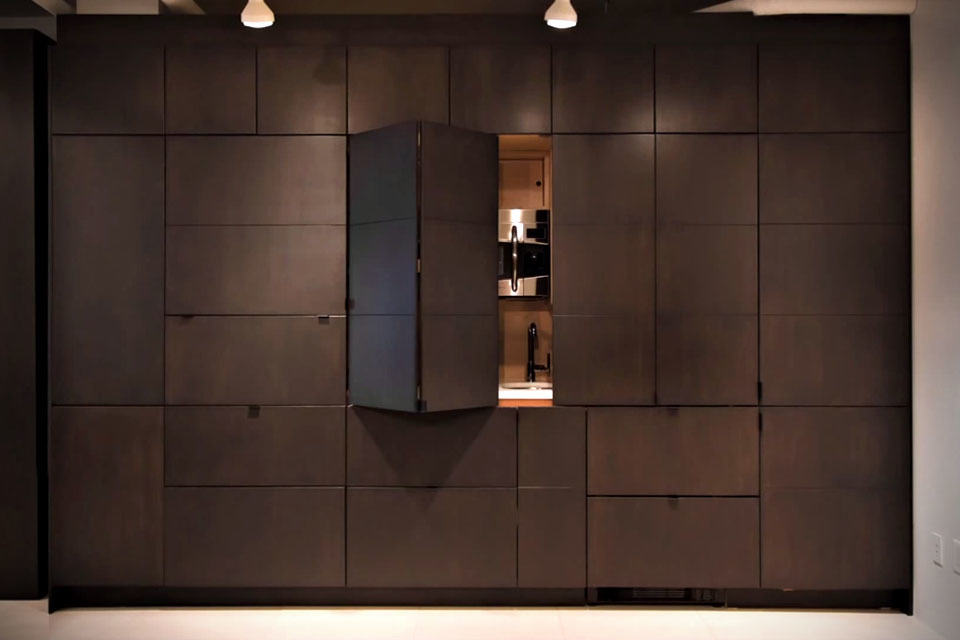Investing in a home safe is a prudent decision for safeguarding valuable possessions, important documents, and sensitive data from theft, fire, or other unforeseen disasters. However, with many available options, choosing the right safe can be overwhelming.
This article aims to guide you through the essential factors to consider when buying a home safe to ensure you make an informed decision that meets your security needs.

Determine Your Security Needs
Before purchasing a home safe, assessing your security requirements is crucial. Think about what items you intend to store in the safe and the level of protection they require. A reputable retailer of high-end home safes suggests that if you have valuable items such as jewelry or cash, you want to protect, opting for a safe with both burglary and fire protection features is essential.
Burglary protection ensures that your valuables are secure from unauthorized access, while fire protection safeguards them from damage in the event of a fire. On the other hand, a burglary-resistant safe may suffice if you primarily need protection from theft.
Different Types Of Safes
Home safes come in various types, each designed to cater to specific security needs. Some common types include:
● Fireproof Safes: These safes are designed to protect contents from fire damage. They are made with fire-resistant materials such as insulated steel or ceramic, capable of withstanding high temperatures for a specified duration.
● Burglary Safes: Burglary safes prioritize protection against theft and unauthorized access. They feature solid steel construction and robust locking mechanisms and may be equipped with additional security features like relocking devices and anti-drill plates.
● Wall Safes: Wall safes are installed directly into a wall, offering discreet storage without occupying floor space. They are suitable for storing small valuables and documents but may lack the same level of burglary or fire protection as standalone safes.
● Floor Safes: These safes are installed on the floor, providing hidden storage and enhanced security. Floor safes are typically larger and offer greater capacity for storing valuables.
Establish a budget for investing in a home safe based on your security requirements, desired features, and available finances. While high-quality safes with advanced security features may come at a premium price, prioritize investing in a safe that offers adequate protection and reliability over cost savings.
Evaluate Security Features
When investing in a home safe, prioritize security features that deter theft and protect against unauthorized access. Opt for safes with robust locking mechanisms such as electronic keypad locks, biometric fingerprint scanners, or traditional combination locks. Ensure the lock is tamper-resistant and offers reliable functionality. The thickness of the safe’s steel walls and door significantly impacts its resistance to forced entry.
Choose a safe with thick steel construction for enhanced security. Check the size and number of bolts securing the door of the safe. Larger bolts and multiple bolt configurations provide added reinforcement against prying attacks. Look for safes equipped with a relocking mechanism that engages in the event of a forced entry attempt, further securing the contents inside.
Consider Fire Protection
If safeguarding essential documents, digital media, or irreplaceable items from fire damage is a priority, opt for a safe with reliable fire protection features. Look for safes with a reputable fire rating, indicating the duration and temperature the safe can withstand without compromising its contents.
Inspect the safe’s construction for fireproof insulation materials such as gypsum or ceramic, which provide thermal protection against high temperatures. Ensure the safe features tight seals to prevent smoke and moisture from seeping into the interior during a fire, preserving the integrity of its contents.
Assess Size And Capacity
Select a safe with adequate size and capacity to accommodate your valuables while considering potential storage needs. Look into the dimensions of the items you intend to store and choose a safe with sufficient interior space. Opt for a slightly larger safe than your current requirements to accommodate any additional items in the future.
When purchasing a home safe, verify if it complies with industry standards and certifications for security and fire protection. Look for safes tested and certified by reputable organizations such as Underwriters Laboratories (UL) or Intertek, ensuring they meet rigorous safety standards and performance criteria.
Installation And Placement
Proper installation and placement of the home safe are crucial for maximizing security and accessibility. Choose a secure and inconspicuous location for installing the safe, such as a closet, basement, or dedicated storage room. Avoid placing the safe in areas easily accessible to intruders or prone to environmental hazards. Securely anchor the safe to the floor or wall to prevent unauthorized removal or tampering.
Anchoring enhances the safe’s resistance to forced entry attempts. Ensure the safe is easily accessible to authorized users while maintaining confidentiality. Avoid installing the safe in areas that compromise privacy or require frequent furniture movement or obstacles to access.

Investing in a home safe is a proactive measure to safeguard valuable possessions, important documents, and sensitive data from theft, fire, or other emergencies. By considering factors such as security needs, types of safes, security features, fire protection, size, installation, certification, and budget, you can make an informed decision and select a safe that meets your security requirements effectively. Prioritize quality, reliability, and compliance with industry standards to ensure peace of mind and protection for your assets in the long run.
Featured image by fabrikasimf on freepik.



